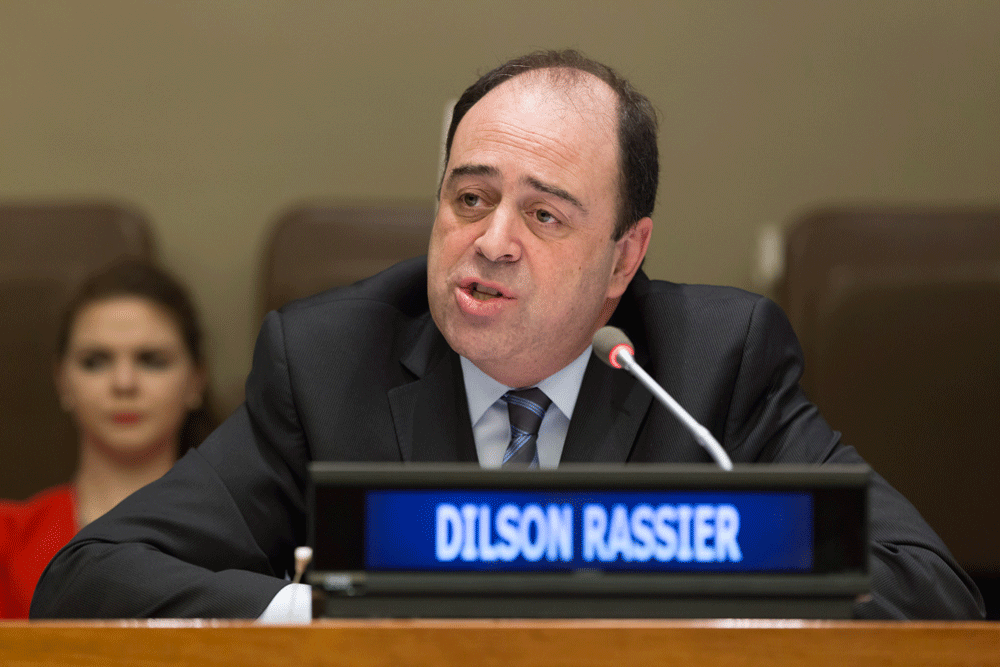
On January 24, Dilson Rassier, Dean of the Faculty of Education, spoke at the United Nations’ headquarters in New York as part of the UN’s inaugural International Day of Education, telling delegates that knowledge is the key to a better world.
“Education means more than reading, doing math or learning scientific theories,” Prof. Rassier told gathered delegates and dignitaries. “Education is one of the major tools for the achievement of the UN’s Sustainable Goals, such as eliminating poverty, promoting gender equity, decent work for all, peace, justice and the development of strong institutions.”
Prof. Rassier was part of a multi-stakeholder panel “Unpacking the potential of education to advance the achievement of the Sustainable Development Goals in promotion of inclusivity and human empowerment.”
Leave no child behind
UN Secretary-General Antonio Guterres implored nations to prioritize education and support it with cooperation, partnerships and funding.
“The world cannot afford a generation of children and young people who lack the skills they need to compete in the 21st century economy, nor can we afford to leave behind half of humanity,” said Guterres, noting that at least 262 million children, adolescents and youth are out of school worldwide. “Education can also break and reverse cycles of intergenerational poverty. Studies show that if all girls and boys complete secondary education, 420 million people could be lifted out of poverty.”
Not what, but how?
There is no debate over the importance of education. The right to education is enshrined in article 26 of the Universal Declaration of Human Rights which calls for free and compulsory elementary education. The Convention on the Rights of the Child, adopted in 1989, goes further to stipulate that countries shall make higher education accessible to all. Education is also one of the the 17 Sustainable Development Goals of the 2030 Agenda for Sustainable Development — adopted by world leaders in September 2015 at an historic UN Summit. The question, asked Prof. Rassier, is how?
“The main question we have to ask at UN today is: How do we do it? How do we reach this goal?” said Prof. Rassier. “Of course, there are several structural layers of action, from governments to citizens; from where we stand at the UN to schools and communities around the world.
Prof. Rassier used McGill as a concrete example of working toward the UN’s goals, saying that the University is committed to “breaking the silos between academia and communities.”
“In the Faculty of Education, for example, we are working closely with schools in underprivileged areas to help decreasing dropout rates, which are staggeringly high in public schools,” continued Prof. Rassier. “We are working in partnership with Indigenous communities to offer full B.Ed. programs in the community, with curriculum that were co-created with them, and with several courses in their own languages. Of course, these are small steps, but ones that we consider very important to promote education at large.”
No quick fixes
There are no quick fixes, Prof. Rassier said. Investing in education requires effort, funding and resources that may not always be readily available. But the return on that investment can be world-changing.
“We see advancements in in many areas every day. We are discovering chemicals that may cure rare diseases; we better understand how nanotechnology drives many aspects of our daily lives; we see new scientific discoveries every day. These are extremely important, as scientific discoveries are the basis for the advancement of our knowledge of the world,” he said. “But I believe that these discoveries will not be enough to bring us a better world – one with social justice and equality, with true human development – if we have one child who cannot read, and is likely destined to poverty for the rest of their life. Education is the most powerful weapon to change the world into a better place, and I hope that we all share the responsibility to make it so.”
